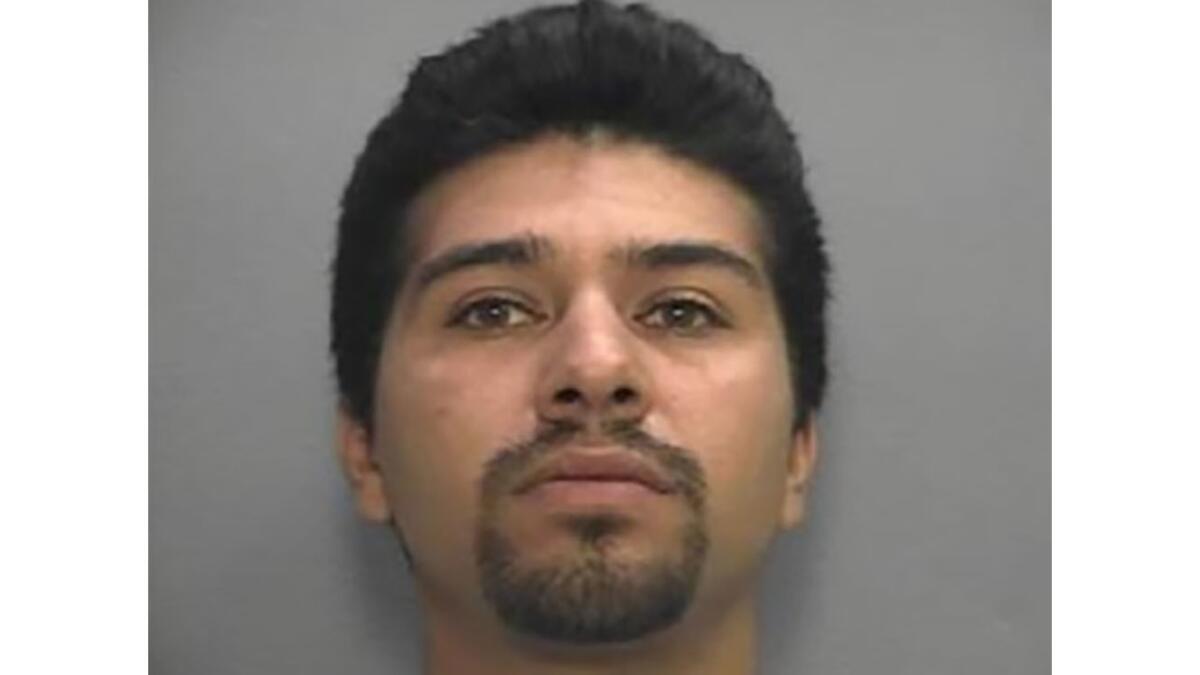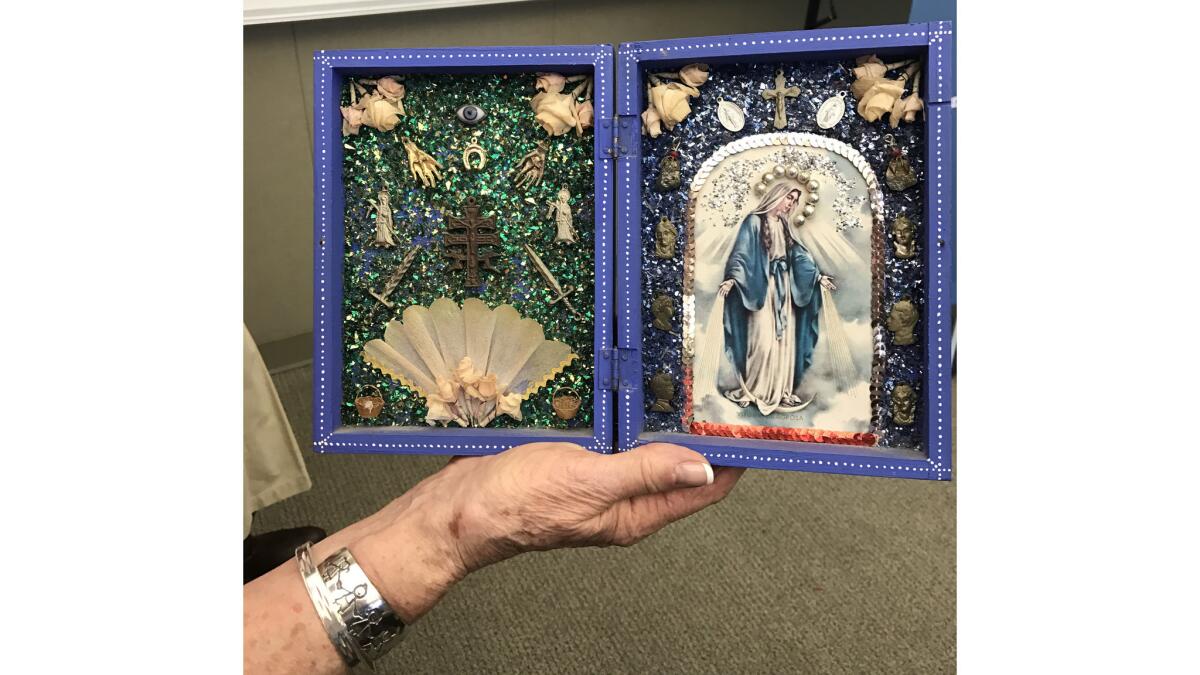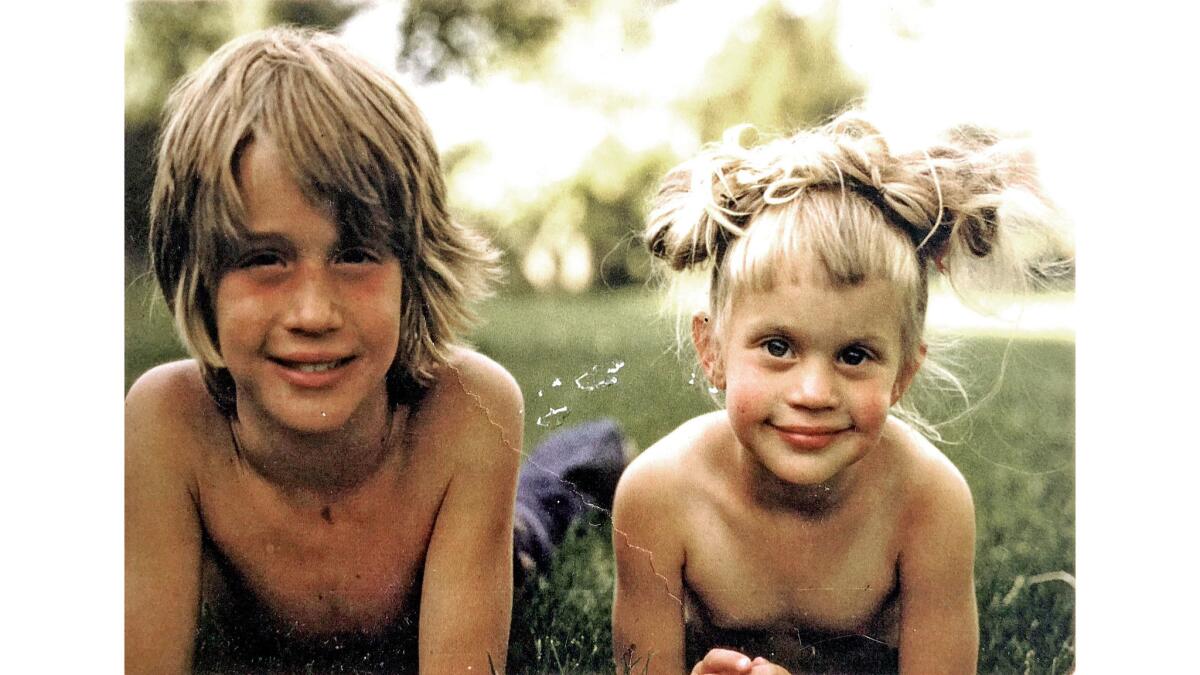Losing ‘Sunny,’ Part 4: Trial, and closure, in 20-year-old murder case prove elusive
Through most of the two-decade Costa Mesa police investigation of the rape and strangulation of Adrienne “Sunny” Sudweeks, a suspect in her killing was nowhere to be found.
But in February 2017, based on new analysis of DNA evidence and a fingerprint at the crime scene, police released the name of Felipe Vianney Hernandez Tellez.
Detectives interviewed Tellez’s ex-wife at her home in Santa Ana on Feb. 7, according to an affidavit filed in Orange County Superior Court.
When they pulled a booking photo of Tellez from their file, the woman began to cry. All the painful memories of their relationship rushed back.
The pair met through friends in 1999 and married after six months of dating. At the time, she cleaned homes in south Orange County and baby-sat for some of her clients. Tellez, a native of Mexico, worked at his brother’s Orange County painting company.
After they married, they moved into an apartment in Santa Ana and Tellez began drinking heavily, she told detectives.
She sobbed and said she never would have married him had she known he was an alcoholic. He assumed a different personality after a few drinks and would become violent, she said.

In May 2000, she reported to police that Tellez arrived home intoxicated after being gone for three days and grabbed her neck, kicked her and pulled her hair. He was arrested and later convicted of battery and inflicting corporal injury on a spouse, according to court documents.
She told Costa Mesa detectives that while she was pregnant with their son, Tellez woke her at 3 a.m., grabbed her arm and pushed her out of the apartment. She ran in her pajamas to a relative’s apartment, according to a Costa Mesa Police Department affidavit.
She said Tellez was jealous and would keep close tabs on her.
Tellez was arrested in 2002 on suspicion of driving under the influence and was transferred to an immigration jail in Arizona. He was deported to Mexico but returned to the United States shortly after, according to police.
The couple eventually separated, and she filed for divorce in 2005.
Tellez’s ex-wife said she last saw him in September 2006 when he showed up to say goodbye to his son. He told them he was getting a ride to Tijuana.
Tellez, now 44, has remarried and is believed to be living in the Mexican state of Oaxaca. He has three children, according to police.
Tellez’s brother, whose name is redacted in police records, told Costa Mesa authorities that he last saw Tellez four years ago. During an interview with police, he received a call from Tellez. He placed the call on FaceTime video and handed his cellphone to Det. Jose Morales, who spoke to Tellez in Spanish.
Tellez was in a brick home painted white. A bed and a crib, where one of his children was sleeping, sat inside.
Morales said he wanted to ask Tellez about a case he was investigating and hoped to do it in person. Tellez told him he’d have to meet him in Oaxaca but would not disclose where he was living.
He explained that he was delivering rotisserie chickens and was constantly moving around. He declined to meet officers in the U.S. Embassy, saying he “could not go there.”
So Morales began questioning him.
Do you know what this is about?
“I don’t have any idea,” he responded.
Morales said police were investigating a 1997 homicide in Costa Mesa.
Tellez told him he didn’t have anything to hide. He thanked God for his family and his children and denied being involved in a homicide.
Morales asked if he knew Adrienne.
No.
Did you ever have sex with her?
He replied that he “never had anything to do with white girls.”
Morales showed him a photo of Adrienne wearing her horned-rimmed glasses.
Tellez repeated that he didn’t know her.
Morales asked if he killed her.
Tellez countered with his own question: How could he if he didn’t know her?
Morales asked again.
“Are you asking me or making fun of me? I am telling you I do not know her,” Tellez said.
Morales asked if he strangled her.
Tellez again replied: How could he if he didn’t know her?

Adrienne’s mother, Sandy Sudweeks, clutched a bright blue milagro that she and Adrienne had bought on a trip to Mexico. They had been drawn to the poem inscribed on the prayer box, which eerily was written Feb. 23, 1990, exactly seven years before Adrienne was found dead at age 26:
Little Virgin of the Miracle, I ask with all my heart that you care for the children of the world, protecting them from being victims of hunger, of bad dreams, of bad treatment, of heat, of cold, from illness, from loneliness, from the cruelty of adults. Little Virgin, we ask that you bless the children of the world as they bless us with their innocence.
Sandy, along with her ex-husband, Alan Sudweeks, and their son, Scott Sudweeks, were standing in the emergency operations center at the Costa Mesa Police Department on Feb. 23, 2017. It had been exactly 20 years since Adrienne’s body was found in her apartment.
It was 10 a.m., and the room teemed with reporters. The evening before, the department had sent out a notice of a news conference announcing updates in the homicide investigation, rousing the interest of people who remembered the case.
Sgt. Stephanie Selinkse had called Sandy the previous November, saying police were looking into the case again. They had been investigating for seven months and felt they finally had some answers.
“That was a big deal for me,” Sandy said.
She saw the news conference as a chance to appeal to authorities in Mexico to help ensure that Tellez was sent to the United States to face charges. She wore a coral-colored blouse and sweater, with a scarf tied loosely around her shoulders.
She took a deep breath before delivering her speech:
“For the last 20 years we have grieved the loss of our beautiful daughter ‘Sunny.’ Her violent murder has changed our lives deeply and the lives of our family and friends. My only prayer over the years has been that the man who killed her cannot hurt anyone else. Now we ask the people of Mexico and their government: Please help us to stop him.”
Alan, who wore a pin with a photo of Sandy and Adrienne on the lapel of his sport coat, welled up as she spoke. His son embraced him tightly.
Painful memories that had lain dormant resurfaced.
And the conclusion still seemed nowhere in sight.
“Sunny was a beautiful young woman. She was just beginning to start her career,” Alan said at the news conference. “She had a bright future and that was all lost when she was attacked and killed. … I’m also angry that for 20 years he [Tellez] has been enjoying life, raising his own children, and yet he denied us the comfort and value of our daughter.”
Alan and Scott did not comment for this series.

Authorities announced they would seek Tellez’s extradition to be tried on a murder charge with possible sentencing enhancements on allegations of murder while committing rape and burglary.
In exchange for his extradition, Orange County prosecutors said they would not seek the death penalty — a condition Mexico places on extradition of its citizens — and instead would ask for life in prison.
International extraditions often require a mountain of paperwork and can take years, according to Erin Rowe, an Orange County deputy district attorney.
Some countries require coroner’s and medical reports, sentencing information and facts about the case and some about witnesses.
Rowe said she takes great care to ensure her requests aren’t returned because they haven’t met all requirements.
More than 10 months after the Feb. 23 news conference, prosecutors are still pursuing Tellez’s extradition. Rowe declined to comment on the specifics but said, “It can take years to get an extradition granted in Mexico. … It’s very deliberate and very thorough.”
Adrienne’s boyfriend, Richard Johnson, considered holding a vigil at the police station to mark the 20th anniversary of her death. The last anniversary he had marked publicly was five years earlier. But he didn’t think it would make much difference after so long.
The day before the February news conference, Johnson received a call from a Costa Mesa detective asking him to go to the station to look at some photos related to the case. Johnson was on the East Coast with his longtime partner, a public defender in Baltimore.
Johnson said he couldn’t get to Costa Mesa but asked if the photos could be sent to the Police Department in Baltimore so he could view them there. The detective didn’t call back, Johnson said.
He heard about the news conference from his editor at the OC Weekly, where he is a freelance photographer, often shooting pictures of musicians and concerts.
“They might want to tell me what’s going on before they tell the rest of the world, before I see it in the newspapers,” he said.
Johnson has never really moved through anger in the so-called seven stages of grief.
That police years before declined to publicly eliminate him as a suspect continues to grate.
“A lot of my anger went right toward the cops because they disrespected me in a million different ways,” he said. “They stepped all over our house and accused me of doing it.”
Costa Mesa police did not comment for this series, citing a policy that prohibits them from discussing cases that have been submitted to the Orange County district attorney’s office.
Johnson said he doesn’t think putting Tellez on trial will make much difference to him. It won’t bring back Adrienne.
Too little, too late, he said.
He still thinks of Adrienne often. It’s painful to wonder what could have been.
The desire for closure is a haunting mistress.
Johnson’s Westminster home has a makeshift memorial to Adrienne atop a thick-framed print of Jackie Kennedy that hangs in his dining room. It includes her horned-rimmed glasses, a small vial of her ashes, her business card and figurines representing different facets of her personality — punk, life of the party, angel.
A time-traveling Homer Simpson represents Johnson’s desire to jet back to 1997 — if only he had decided to go back to their apartment that February night instead of working, maybe he could have saved her.
Every Feb. 23, Peter Vukmirovic Stevens — Adrienne’s friend since their high school days — makes a point to call Johnson. A bond formed between them in the wake of her death.
“He knows why I’m calling,” Stevens said.
Sometimes they don’t even talk about her — it’s hard to discuss the loss. But the gesture offers a reminder that they’re not alone and that they haven’t forgotten.

“There is no closure. It’s not over, ever,” Sandy Sudweeks said. “The process of grieving has its own pace.”
Though she said Alan and Scott have remained angry over Adrienne’s killing, Sandy said she never felt much rage. And unlike Johnson, she said she’s grateful to police for investing the time and resources to try to solve the case.
At first, she was concerned by her absence of rage, thinking she might be repressing it only to unleash it later on someone who didn’t deserve it. But she later determined that anger simply wasn’t her style, perhaps because of her Buddhist teachings.
She likens the grieving process to walking in mud. One foot goes in one direction while the other goes another way.
Sandy doesn’t dwell on the memories of her daughter every day. That would be much too difficult.
But little reminders of Adrienne are stashed conspicuously around her home — a framed photograph of when she climbed the Matterhorn in Switzerland with her dad, a silver ring that Sandy has worn for two decades and a black-and-white photo taped to her bathroom mirror. Under the photo is a message from a fortune cookie.
Sandy read it aloud:
Answer just what your heart prompts you.
“That was her,” she said.
She smiled.
This is the last of four parts.
Twitter: @HannahFryTCN
All the latest on Orange County from Orange County.
Get our free TimesOC newsletter.
You may occasionally receive promotional content from the Daily Pilot.




